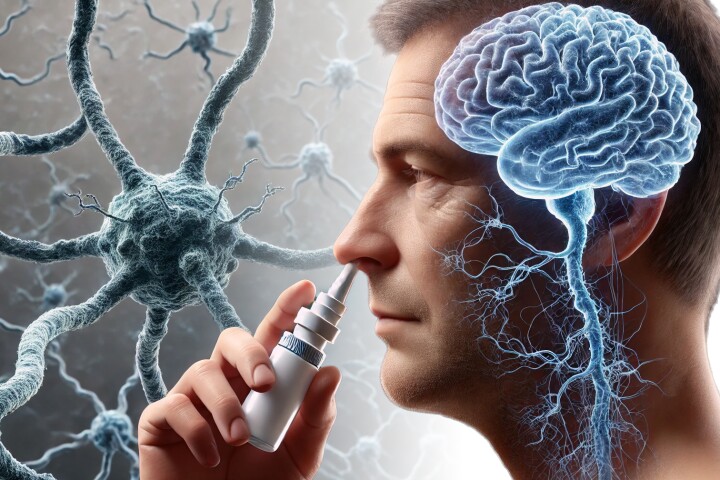Alcohol use disorder is a leading cause of preventable death and a complex disease, but by understanding its effects on brain function scientists hope to lower the risk and rates of relapse. The latest finding in this space comes from Scripps Research scientists, who have pinpointed a brain protein they suggest plays an important role during alcohol withdrawal, and could be targeted for future treatments of the condition.
Defined as an inability to stop drinking despite negative impacts on one's health, relationships, financial wellbeing or job, alcohol use disorder affects millions in the US, and it can be a difficult condition to tackle. Drug treatments that suppress the desire to drink and therapy sessions are options for sufferers, but relapse remains common.
By studying the brain circuitry behind the condition, scientists hope to open up new possibilities for intervention. One interesting example of this came last month through a study that explored the relationship between anxiety and alcohol abuse. That research demonstrated how binge drinking during adolescence can drive up one's predisposition to both anxiety and alcohol abuse in adulthood. Fascinatingly, it showed through gene editing how this risk could be reduced via a type of "factory reset" for the brain.
This new study also focuses on alcohol abuse and anxiety, and the ways the latter can contribute to relapse. Studies have shown that withdrawal symptoms from alcohol include mounting anxiety, in part due to the release of stress molecules in the brain. One of these, known as corticotropin-releasing factor (CRF), is known to stimulate receptors on neurons in the prefrontal cortex along with the limbic system, brain structures that help process emotions.
Understanding which of these neurons are susceptible to CRF could therefore offer new ways to tackle this form of anxiety, and this is where the Scripps Research team has found some success. Through experiments on mice, the scientists identified a population of neurons in the medial pre-frontal cortex (mPFC) that expressed a receptor, dubbed CRF1, which makes them sensitive to CRF.
The experiments showed that these neurons played a role in shaping mood and behavior during alcohol exposure and withdrawal, and that deleting the CRF-sensitive neurons made the mice less anxious. Follow-up experiments showed these neurons were less excitable and less likely to send signals to other neurons during withdrawal among alcohol-dependent mice. Conversely, nearby neurons lacking the CRF receptors became more excitable.
“These CRF-sensitive mPFC neurons appear to constitute a unique neuronal population that undergoes profound neuroadaptations with chronic alcohol exposure,” says study co-author Pauravi Gandhi.
Digging deeper into the mechanics at play, the scientists found that as alcohol withdrawal dampened the excitability of the CRF-sensitive neurons, it drove up gene expression associated with an immune protein called CSF1. Studies have shown that levels of CSF1 increase in mPFC neurons under conditions of chronic stress, and that it assists in disrupting connections between neurons, resulting in anxiety and depression.
The scientists artificially increased CSF1 production in the CRF-sensitive neurons in mice, and found the mice exhibited much of the behavioral changes seen in alcohol withdrawal. This suggests that levels of the protein CSF1 in these neurons could be a key contributing factor to symptoms of alcohol withdrawal, and that targeting it could prove an effective way to alleviate them. The team is now looking to explore that possibility in pre-clinical models.
“Alcohol withdrawal activates the stress system in the brain, which contributes to relapse, and in this study, we linked this stress response to CSF1, a neuroimmune mediator, opening up new opportunities for therapeutic intervention,” said study senior author Marisa Roberto.
The research was published in the journal Molecular Psychiatry.
Source: Scripps Research




